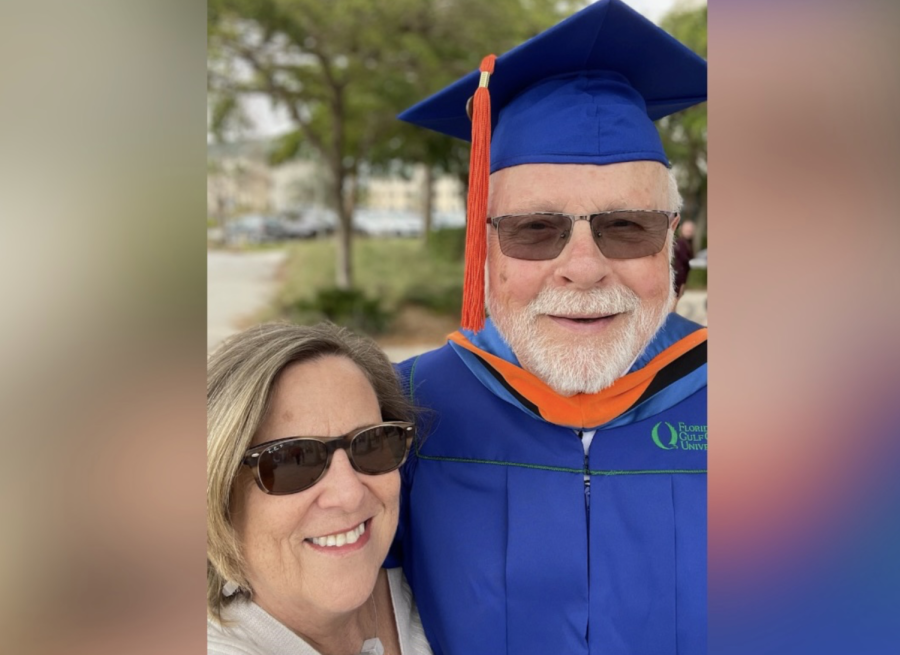80-year-old FGCU Graduate Inspires Others “To Get Better”
Andy Äsk smiles for a selfie with his significant other, Joyce Owens, after attending the commencement ceremony where he received his Master of Science in engineering. Photo courtesy of Andy Äsk.
January 20, 2023
While some students may be feeling rested and reset after winter break, others may be feeling as though there is no end in sight of graduation. For the latter, inspiration can be found in 80-year-old FGCU graduate Andy Äsk, who finished school in the fall with a Master of Science in engineering.
Prior to graduating from FGCU, Äsk earned a bachelor’s in engineering from Iowa State University and a juris doctor from the University of Akron in Ohio. The last time he sat in a classroom was 1974.
Äsk, who has been an HVAC engineer since 1964, said self-improvement is important, which is why he returned to school.
“I do believe that we have to get better at whatever endeavor it is, life, occupation, hobbies,” he said. He continued to work as an engineering consultant while he was an FGCU student and maintained a 4.0 GPA.
While he had an advantage because of his experience and practical background in the engineering field, Äsk still faced challenges as a returning student.
“The process of learning is a bit more difficult when you’re old than when you’re young,” he said. “I’m sure it took a lot longer for me to study…than it did the other students. I had to stay awake till later at night because that’s when the courses were.”
Äsk’s two children, who live in California, were supportive of him re-enrolling.
“They know that I’m just a little bit eccentric,” he said. “They were somewhat surprised I would really do this, and then they are pleasantly surprised I was able to.”
In 2008, Äsk also published a book titled “H2NO,” a 424-page book about HVAC engineering.
“I simply wrote down everything I knew about HVAC that I thought might be of use to somebody else.”
Danvers Johnston is an FGCU assistant professor in the College of Engineering who taught Äsk and said he was a unique student.
“[I] was, of course, pleasantly surprised in the end, really blown away by the whole experience,” Johnston said.
“What stood out to me the most, very quickly, was enthusiasm,” he said. “The man who could be retired and satisfied with playing golf every once in a while, say, relaxing, it’s the opposite. And that really stood out and inspires me.”
Johnston said they would often meet up for coffee because Äsk would want to discuss application of what he learned in the classroom. He would apply material he learned to day-to-day life, which was a large part of his success.
“As much as possible, I like to emphasize that students truly need to take this time to focus just on courses as much as possible, and that means outside of the classroom, reading, working through example problems independently and then comparing what you did with your peers.”
As for what is next for Äsk, he said he plans to update his book and put it in a more user-friendly format, like YouTube videos and PDFs.
“The first step to doing something is you have to perceive you can do it,” Äsk said. “And if you don’t make that step, then you can’t do it.”




























